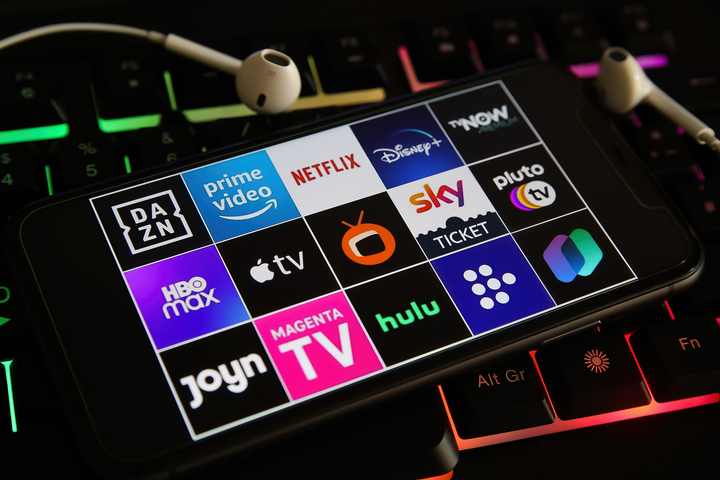Nigeria’s creative sector is a thriving industry driven by young and talented individuals. From film to music and fashion, the country’s creative sector holds significant global influence and has the potential to become a prominent exporter of Nigerian culture.
Despite facing challenges related to informal business structures, the sector has contributed substantially to Nigeria’s GDP, employing millions of people.
With improved business structures, increased investment, and support from regulators and policymakers, the creative industry in Nigeria is poised for remarkable growth. It can potentially become the world’s fastest-growing entertainment and media market.
The Economic Impact:
The creative sector in Nigeria has made a name for itself globally, particularly in music, film, and fashion. According to Statista, revenue in the Digital Music market alone has been projected to reach US$101.80m this year (2023).
The 2021 Creative Sector Report by Jobberman Nigeria, which explored Nigeria’s creative industry in detail, found several pieces of evidence that alluded to the boom the sector is experiencing. The music industry, in particular, has witnessed significant revenue growth, with projected revenues reaching US$73 million in 2021, compared to US$39 million in 2016, signifying a 13.4% compound annual growth rate (CAGR). Notable Nigerian artists such as Femi Kuti, Yemi Alade, Asa, Davido, Wizkid, and Burna Boy have achieved international recognition and awards, further bolstering the country’s music industry.
Nollywood, Nigeria’s film industry, is the second-largest producer of movies in the world, producing approximately 50 movies per week and generating around $600 million annually. The industry has embraced technological platforms like Iroko TV, Netflix, and cinemas to enhance the distribution of its movies. Women directors such as Funke Akindele and Kemi Adetiba have significantly contributed to the industry’s success.
The fashion market in Nigeria is also gaining momentum, accounting for 15% ($4.7 billion) of the Sub-Saharan fashion market. Revenue from textiles, apparel, and footwear has experienced consistent growth, averaging 17% since 2010. The industry has significant growth potential with increasing global recognition and demand for Nigerian fashion.
Trends and Future Outlook:
The Creative Sector report not only presented a comprehensive analysis of the current state of the creative industry but also shed light on several significant emerging trends shaping its future. By closely examining these trends, you can gain valuable insights and leverage them to your advantage as a professional in this dynamic space. By embracing these emerging trends and proactively incorporating them into your work, you can position yourself as a pioneer, drive meaningful change, and unlock new opportunities for success.
- Advancement in Technology:
The creative industry in Nigeria is witnessing a significant advancement in technology, transforming how content is created, produced, and distributed. Technological platforms such as Prime Video, Netflix, and social media have expanded the reach of Nigeria’s film industry, popularly known as Nollywood. The use of these platforms has not only increased the distribution of Nigerian movies but has also enabled access to global markets.

Furthermore, the music industry has experienced a surge in digital platforms, allowing Nigerian musicians to reach a wider audience worldwide. Technology integration in the creative sector is revolutionising content creation and opening new avenues for growth and revenue generation.
Plugging into this trend requires creative professionals in Nigeria to embrace and leverage the technological platforms that have revolutionised content creation and distribution. For filmmakers, leveraging platforms like YouTube and TikTok to publish their stories can help expand your reach and tap into global markets; this way, popular platforms like Netflix may be attracted to your work. You can also explore crowdfunding media to secure funding for your projects.
Musicians can utilise digital platforms such as music streaming services like Spotify, Boomplay, and social media to promote music, engage with fans, and reach a wider audience. Embracing digital distribution channels and understanding data analytics can provide valuable insights for targeted marketing and audience engagement. This means having business accounts across all platforms.
- Urbanisation and Increasing Youth Population:
Urbanisation and the growing youth population in Nigeria drive the demand for creative content. As more people migrate to urban areas, the need for entertainment, fashion, and artistic experiences rises.

This trend has created a fertile ground for the creative industry to thrive and meet the evolving preferences of urban consumers. The youth population, in particular, plays a significant role in shaping trends and driving the consumption of creative content. Their aspirations, preferences, and digital savviness are reshaping the creative landscape and pushing the boundaries of innovation.
To tap into the opportunities created by urbanisation and the growing youth population, creative professionals need to understand the preferences and aspirations of urban consumers, particularly the youth.
You can collaborate with fashion influencers and bloggers to showcase your designs and gain visibility. Creating content that resonates with urban lifestyles and experiences can help attract a larger audience. Building a solid online presence through social media platforms, interactive portfolio websites, and mobile apps can facilitate direct engagement with urban consumers and foster brand loyalty.
- Fourth Industrial Revolution:
The fourth industrial revolution, characterised by the fusion of digital, physical, and biological technologies, is reshaping the creative industry in Nigeria.
This revolution presents opportunities for creative professionals to leverage emerging technologies such as artificial intelligence, virtual reality, and blockchain to enhance their work.
Integrating these technologies in fields like film production, music creation, and fashion design enables new forms of storytelling, immersive experiences, and personalised content. Embracing the fourth industrial revolution can enhance the competitiveness and growth of Nigeria’s creative sector.
Asa creative professional, you can plug into the fourth industrial revolution by embracing and incorporating emerging technologies into your creative processes. Virtual reality (VR) technology can create immersive storytelling experiences for filmmakers.
Musicians can experiment with AI-generated music and virtual concerts to engage their fans. Fashion designers can leverage blockchain technology for transparent supply chains and to offer limited-edition digital collectables.
By staying updated with technological advancements and continuously learning new skills, you can position yourself at the forefront of innovation and offer unique experiences to your audience.
- Increasing Internet and Mobile Penetration:

The increasing Internet and mobile penetration rates in Nigeria have transformed how people access and consume creative content.
With the widespread availability of affordable smartphones and internet connectivity, more Nigerians now have access to digital platforms and social media to discover and engage with creative works.
This connectivity has expanded the audience reach for artists and creatives, enabling them to build a global following and monetise their talent. Additionally, the rise of e-commerce platforms has made it easier for creative entrepreneurs to sell their products and services online, creating new business opportunities.
Creative entrepreneurs can establish e-commerce websites to sell their products and services directly to consumers. Investing in mobile-friendly websites and mobile apps can enhance accessibility and provide a seamless user experience for mobile users.
Conclusion
By embracing these trends and leveraging their opportunities, creative professionals in Nigeria can expand their reach, engage with a global audience, and stay at the forefront of innovation in the industry.
These developments also have the potential to transform the creative landscape as we have come to know it. They can unlock the immense potential of Nigeria’s creative industry, contributing to economic diversification, job creation, and the projection of Nigerian culture on the global stage. Continued investment in talent development, infrastructure, and regulatory support is essential to realise these opportunities fully. With the right strategies, Nigeria’s creative space can become a powerhouse of innovation, creativity, and economic growth.










